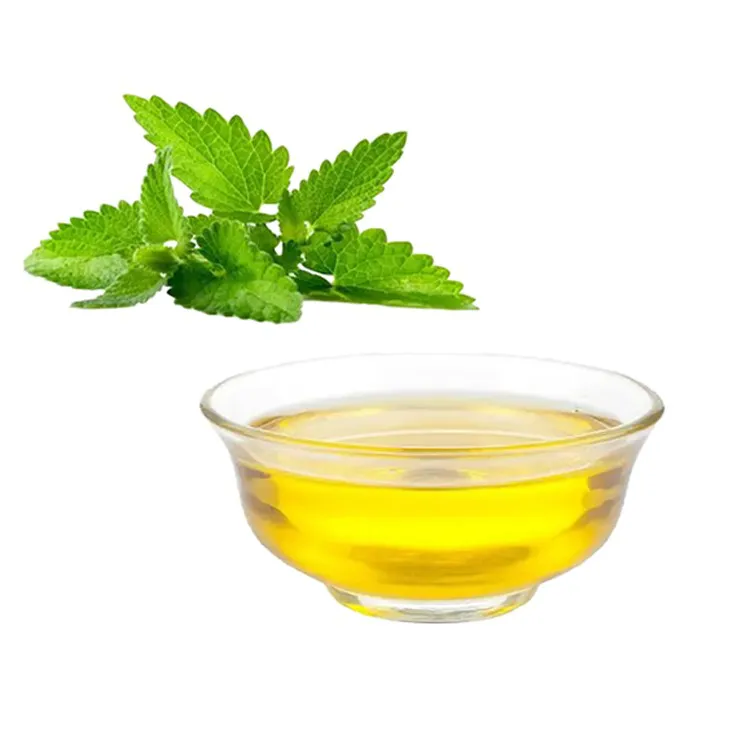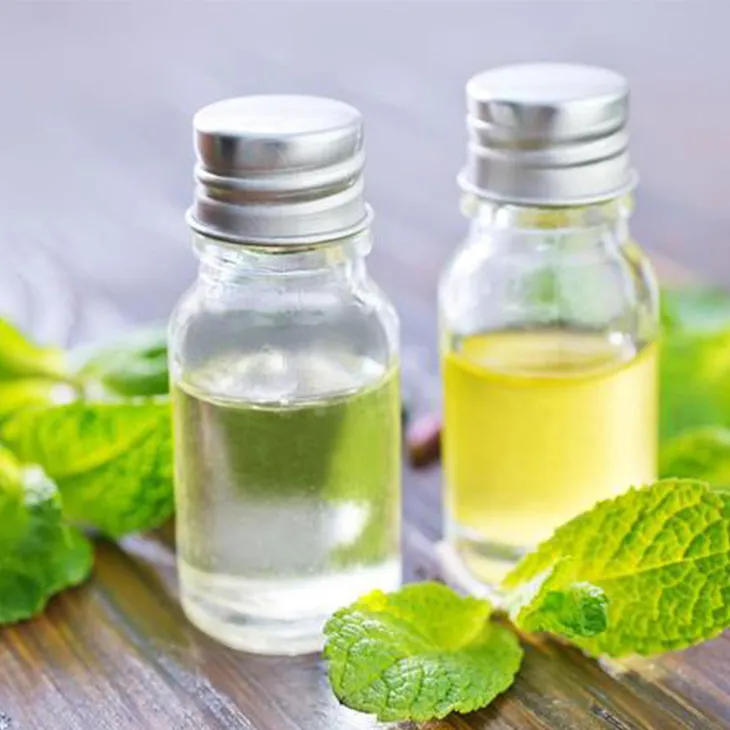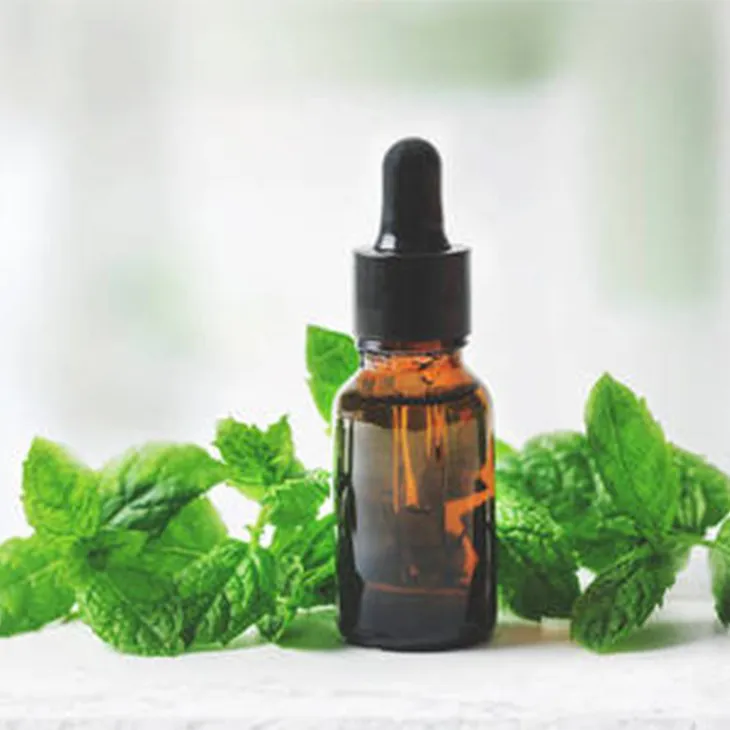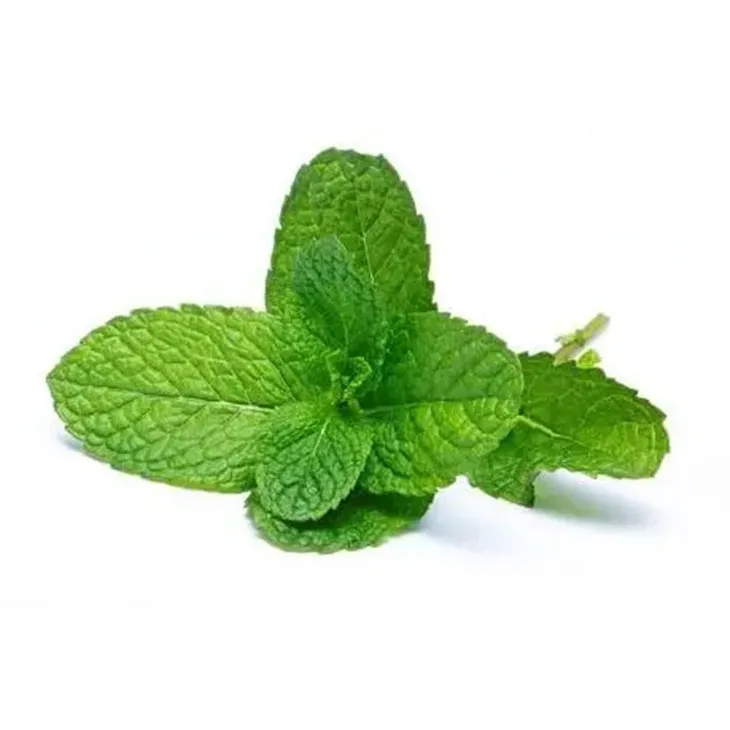- 0086-571-85302990
- sales@greenskybio.com
How can the efficacy of peppermint oil be extended to hair and vitality?
2024-11-12

Introduction
Peppermint Oil has been recognized for its various beneficial properties for a long time. It is a natural product derived from the peppermint plant, Mentha piperita. In recent years, its potential applications in relation to hair health and overall vitality have gained increasing attention. This article will explore in detail how the efficacy of Peppermint Oil can be extended to these two important aspects.

Peppermint Oil and Hair
Reducing Dandruff
Dandruff is a common hair problem that many people struggle with. Peppermint oil can play a significant role in reducing dandruff. One of the main reasons for this is its antifungal and antibacterial properties. The fungus Malassezia is often associated with dandruff formation. Peppermint oil can inhibit the growth of this fungus, thereby reducing the occurrence of dandruff.
Moreover, peppermint oil can help to balance the scalp's sebum production. Excessive sebum can create an environment conducive to the growth of fungi and bacteria, leading to dandruff. By regulating sebum production, peppermint oil helps to keep the scalp clean and healthy, which in turn reduces dandruff.
Relieving Itchiness
Itchy scalp can be very uncomfortable. Peppermint oil is effective in relieving this itchiness. The menthol in peppermint oil has a cooling effect on the scalp. When applied to the itchy area, it provides an immediate sense of relief.
It also has anti - inflammatory properties. Inflammation on the scalp can cause itchiness. Peppermint oil can reduce this inflammation, soothing the scalp and alleviating the itchy sensation. For example, if the itchiness is caused by a mild scalp rash or irritation, peppermint oil can help to calm the affected area.
Promoting Hair Growth
There is some evidence to suggest that peppermint oil may promote hair growth. It can increase blood circulation to the scalp. Good blood circulation is essential for delivering nutrients to the hair follicles. When more nutrients reach the follicles, it can stimulate hair growth.
Peppermint oil may also have a positive effect on the hair follicles themselves. It can potentially stimulate the hair follicles to enter the anagen (growth) phase of the hair cycle more frequently. However, more research is needed to fully understand the mechanisms behind its hair - growth - promoting effects.

Peppermint Oil and Vitality
The Stimulating Aroma
The aroma of peppermint oil has a stimulating effect on the mind. When inhaled, it can quickly arouse the senses. This is due to the presence of certain volatile compounds in peppermint oil that interact with the olfactory receptors in the nose and then send signals to the brain.
For example, in a work or study environment, when one feels sluggish or lacks concentration, a few drops of peppermint oil diffused in the air can help to clear the mind and improve focus. It can make a person feel more awake and alert, enhancing their overall mental performance.
Relieving Stress and Fatigue
Stress and fatigue are common problems in modern life. Peppermint oil can be an effective natural remedy for relieving these. When a person is stressed, their body is in a state of physiological arousal. The aroma of peppermint oil can help to relax the body by reducing the levels of stress hormones such as cortisol.
Regarding fatigue, peppermint oil can provide an energy boost. Instead of relying on caffeine or other stimulants, which may have side effects, peppermint oil offers a natural alternative. It can relieve physical and mental fatigue, making a person feel more energetic and revitalized.
Improving Mood
The use of peppermint oil can also have a positive impact on mood. It can create a sense of freshness and well - being. When a person is in a good mood, they are more likely to be active and engaged in various activities, which in turn contributes to their overall vitality.
Peppermint oil may work by influencing the neurotransmitters in the brain. For example, it may increase the levels of serotonin, which is often associated with feelings of happiness and relaxation. This can help to improve a person's emotional state and enhance their vitality.

Methods of Using Peppermint Oil for Hair and Vitality
For Hair
1. Scalp Massage Oil: - Mix a few drops of peppermint oil with a carrier oil such as coconut oil or jojoba oil. The ratio can be about 2 - 3 drops of peppermint oil per tablespoon of carrier oil. - Gently massage the mixture onto the scalp for 5 - 10 minutes. This helps to ensure that the peppermint oil reaches the scalp evenly and can have maximum effect on reducing dandruff, relieving itchiness, and potentially promoting hair growth.
2. Peppermint Oil Shampoo: - Add a few drops of peppermint oil to your regular shampoo. About 3 - 5 drops per ounce of shampoo is a good starting point. - Use this shampoo as you normally would during your hair - washing routine. The peppermint oil in the shampoo can provide the same benefits as when used in a massage oil, but in a more convenient form.
For Vitality
1. Aromatherapy Diffuser: - Fill the aromatherapy diffuser with water and add 3 - 5 drops of peppermint oil. - Place the diffuser in your living room, office, or bedroom. The diffused peppermint oil aroma can fill the room, providing a stimulating and stress - relieving environment.
2. Inhalation: - Put a drop or two of peppermint oil on a handkerchief or tissue. - Inhale the aroma deeply several times when you need a quick pick - me - up or to relieve stress. This is a simple and portable method that can be used anywhere.

Precautions and Considerations
1. Skin Sensitivity: - Some people may have sensitive skin. Before using peppermint oil on the scalp or for skin application, it is advisable to do a patch test. Apply a small amount of the diluted peppermint oil to a small area of skin, such as the inside of the forearm, and wait for 24 hours to check for any allergic reactions or skin irritation.
2. Dilution: - Peppermint oil is very concentrated, and it should always be diluted before use, especially when applying it to the skin or scalp. Using undiluted peppermint oil can cause skin irritation, burning sensations, or other adverse reactions.
3. Internal Use: - Peppermint oil should not be ingested without proper medical supervision. Although it is a natural product, internal use can pose risks such as digestive problems or interactions with medications.
Conclusion
Peppermint oil has great potential in terms of hair health and overall vitality. Its properties such as antifungal, antibacterial, anti - inflammatory, and its stimulating aroma can be harnessed to reduce dandruff, relieve itchiness, promote hair growth, relieve stress, fatigue, and improve mood. However, proper usage methods and precautions should be followed to ensure its safety and effectiveness. With the right approach, peppermint oil can be a valuable addition to one's hair care routine and overall well - being.
FAQ:
1. How does peppermint oil reduce dandruff?
Peppermint oil has anti - inflammatory and antifungal properties. These properties can combat the factors that cause dandruff, such as fungal infections on the scalp and inflammation of the scalp skin, thereby reducing dandruff.
2. Can peppermint oil promote hair growth?
There is some evidence suggesting that peppermint oil may promote hair growth. It can improve blood circulation in the scalp. Better blood circulation means more nutrients can reach the hair follicles, which is beneficial for hair growth.
3. How does the aroma of peppermint oil relieve stress?
The aroma of peppermint oil has a refreshing and soothing effect on the nervous system. When inhaled, it can trigger certain responses in the brain that help to relax the body and mind, thus relieving stress.
4. Is it safe to use peppermint oil directly on the hair?
Peppermint oil is usually very concentrated, so it is not recommended to use it directly on the hair. It should be diluted with a suitable carrier oil, such as coconut oil or almond oil, before application to avoid potential skin irritation.
5. How often should peppermint oil be used for hair and vitality benefits?
For hair benefits, it can be used 1 - 2 times a week. When using it for its vitality - enhancing effects through inhalation, it can be used as needed, but avoid over - exposure as it may cause headaches in some cases.
Related literature
- The Effects of Peppermint Oil on Hair Health"
- "Peppermint Oil: Aromatherapy and its Impact on Vitality"
- "Peppermint Oil in Scalp Care and Overall Well - being"
- ▶ Hesperidin
- ▶ Citrus Bioflavonoids
- ▶ Plant Extract
- ▶ lycopene
- ▶ Diosmin
- ▶ Grape seed extract
- ▶ Sea buckthorn Juice Powder
- ▶ Fruit Juice Powder
- ▶ Hops Extract
- ▶ Artichoke Extract
- ▶ Mushroom extract
- ▶ Astaxanthin
- ▶ Green Tea Extract
- ▶ Curcumin
- ▶ Horse Chestnut Extract
- ▶ Other Product
- ▶ Boswellia Serrata Extract
- ▶ Resveratrol
- ▶ Marigold Extract
- ▶ Grape Leaf Extract
- ▶ New Product
- ▶ Aminolevulinic acid
- ▶ Cranberry Extract
- ▶ Red Yeast Rice
- ▶ Red Wine Extract
-
Black Rice Extract
2024-11-12
-
Red Vine Extract
2024-11-12
-
Hesperidin
2024-11-12
-
Chasteberry Extract
2024-11-12
-
Curcuma Longa Extract
2024-11-12
-
Medicinal Marshmallow Extract
2024-11-12
-
Propolis Extract Powder
2024-11-12
-
Cassia Seed Extract
2024-11-12
-
Saponin Extract
2024-11-12
-
Licorice Root Extract Powder
2024-11-12





















